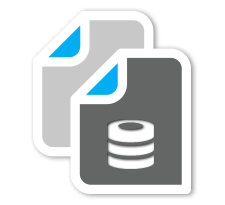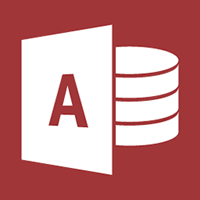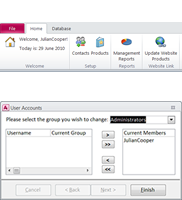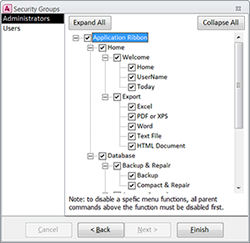 Back End DatabaseThe Back End Database is stored in a central location - either on a server (recommended) or a shared folder on a desktop. Relational Tables This database houses all the data entered by you users in a number of relational tables. This means that each piece of data is only stored once within your database. For example, your product details are only stored in one table. Any other table that links to a product contains only a number representing the unique ID of the product it refers to. This greatly reduces the storage space required for your database. Simultaneous Connections Placing the data in one central location allows simultaneous use for multiple users across any number of PCs. This ensures that all your users are using the most up to date data possible, reducing the potential for errors. Backup Possibly the most importat part of any business is a good backup routine! Because your data is stored in one central location, the backup overhead is also greatly reduced as their is only ever one location that requires backing up. |
Front End ApplicationThe Front End Application can be installed on any number of PCs allowing simultaneous use for multiple users. Navigation in our applications is done via a Fully Customised Ribbon. The Ribbon is part of the new the Office Fluent user interface (UI). Throughout the Office suite, Microsoft replaced the traditional menus and toolbars with this new Ribbon so that you can find and use the features you need - and use - a lot easier. It was designed to be intuitive for you and, perhaps most importantly, easy to get accustomed to. Because the back end database is separated from the front end application, if you need to re-install or renew your PC, you can do so without having to worry about losing your data. Upgrades are also greatly simplified as these are simply a case of un-installing the old application and installing the new. |
Granular Access ControlAll of our databases include powerful granular access control as standard, putting you in control of your data security. The granular access control enables users roles and responsibilities to be set so that individuals are given access only to relevant areas or functions of the system. Access rights are defined on a group basis meaning you only need to setup each set of rights once and then simply add the user/s to this group. For example, your sales team could have access to your customer data but your warehouse would only have access to the tools they need to despatch your products, limiting the potential risk to your organisatin and keeping your sensitive data safe. |












